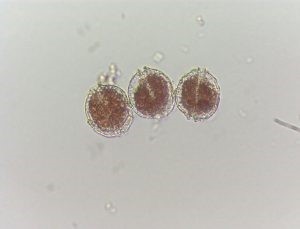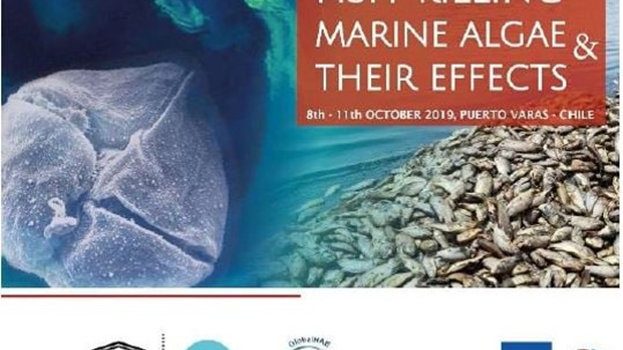IFOP organizes Advanced International Colloquium “Fish mortality status due to FAN and its impacts in a changing environment”
October 12th, 2019
International experts attending this event: Per Juel Hansen (University of Copenhagen, Denmark), Thomas Ostenfeld Larsen (Technical University of Denmark), Gustaaf Hallegraeff (Tasmania of University, Australia), Don Anderson (Woods Hole Oceanographic Institution, United States).
Guests: Paulina Artacho, Alejandro Clément.
On Thursday, October 10th, in Puerto Varas, the Advanced International Colloquium “Status of FAN fish mortality and its impacts in a changing environment” will be held. It is sponsored by COI-IPHAB (Intergovernmental Oceanographic Commission), as part of the GlobalHAB scientific agenda, with the support of the Chilea government through CORFO and with CREAN-IFOP collaboration, it will allow to comprehensively address knowledge gaps and to generate a synthesis of its current state linked to technological and scientific strategies, as well as approaches to mitigate impacts. As a way to strengthen the relationship with the environment, part of the activities considered in this Colloquium, a set of talks aimed at decision makers, professionals, academics and the general public has been included.
You can watch the live broadcast
https://www.facebook.com/1871967802832922/videos/1254975338037553/
Among the topics that will be discussed we can mention:
Panoramic vision: fish mortality mechanisms, ichthyotoxins, detection and identification methods and their standardization.
Climatic change and fish killing algae.
FAN monitoring management in the Chilean salmon industry.
Distribution of HABf INDEX and salmon farming economic impacts analysis.
Leonardo Guzmán M, Aquaculture Division Head, explained “Algae blooms that cause fish mortality are a growing concern matter for socio-economic interests linked to sustainability and food security of shellfish and living resources. Fisheries and aquaculture development as part of coastal resources integrated management is particularly susceptible to ichthyotoxic events threat and their consequences. While these events are classified as “fish mortality,” there are associated impacts on other components of coastal marine ecosystems, including wild fish populations, benthic macrofauna and macrophytes. Apart from the aquaculture and fishing industry sector, algae that kill fish have not been adequately considered and the issue has not been systematically addressed in the scientific community worldwide.
Known ichthyotoxic marine microalgae are often identified as causative organisms, but taxonomic and biogeographic uncertainties persist in species distribution. The role of climate change that leads to environmental regimes changes and, therefore, to possible higher frequency, magnitude and biogeographic distribution of algal blooms that cause fish mortality; These changes pose a challenge to understand the ocean of the future. The environmental factors knowledge that drive the blooms dynamics, are not fully understood, and this has hindered to predictive models development for forecasting and risk assessment of fish mortality events. Even the proposed mechanisms by which exposure to such blooms causes fish morbidity and mortality are very controversial and lack scientific consensus. In addition, to assess ichthyotoxicity, there is a limited application and lack of standardization of bioassays based on fish or cells ”
